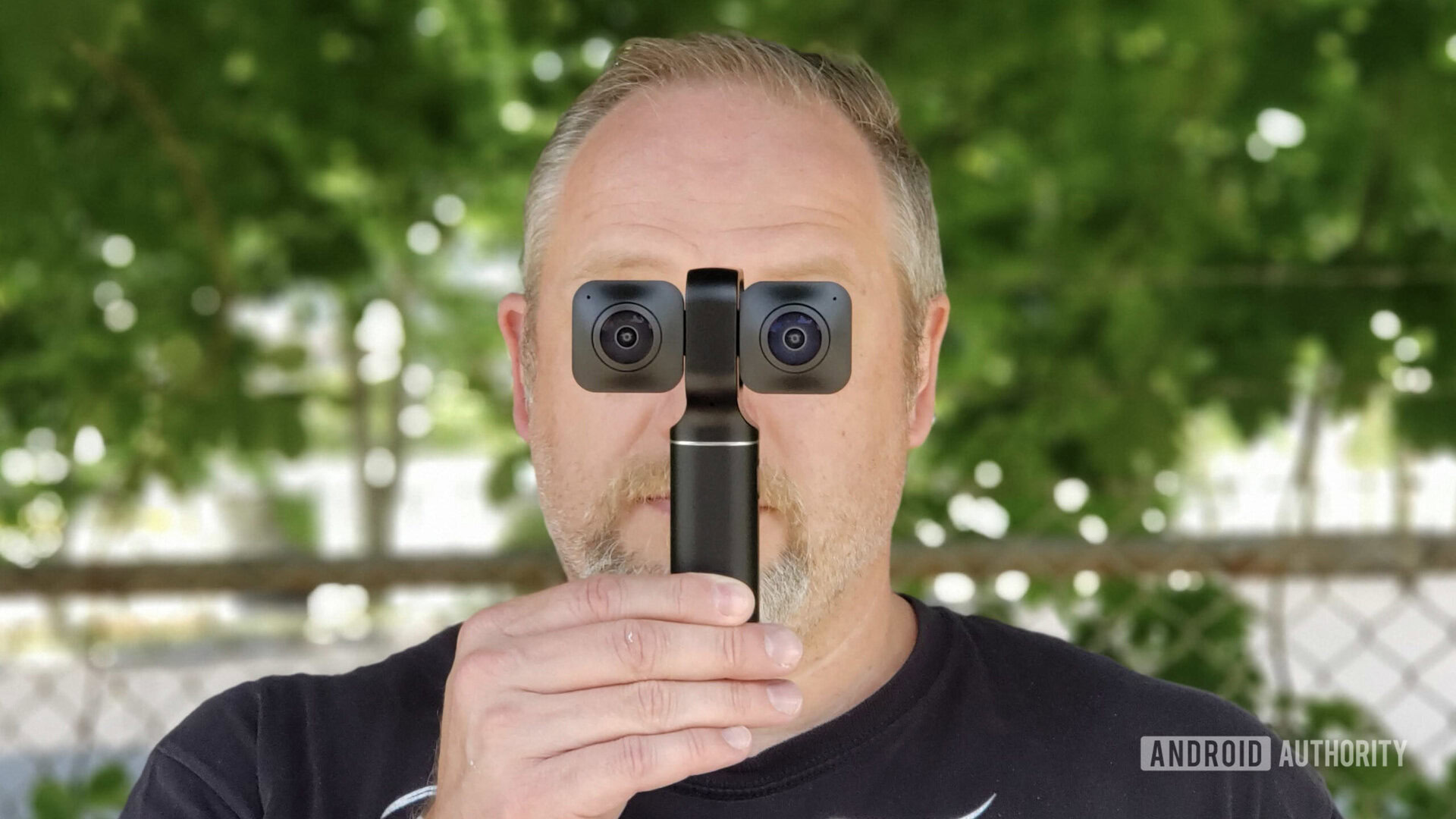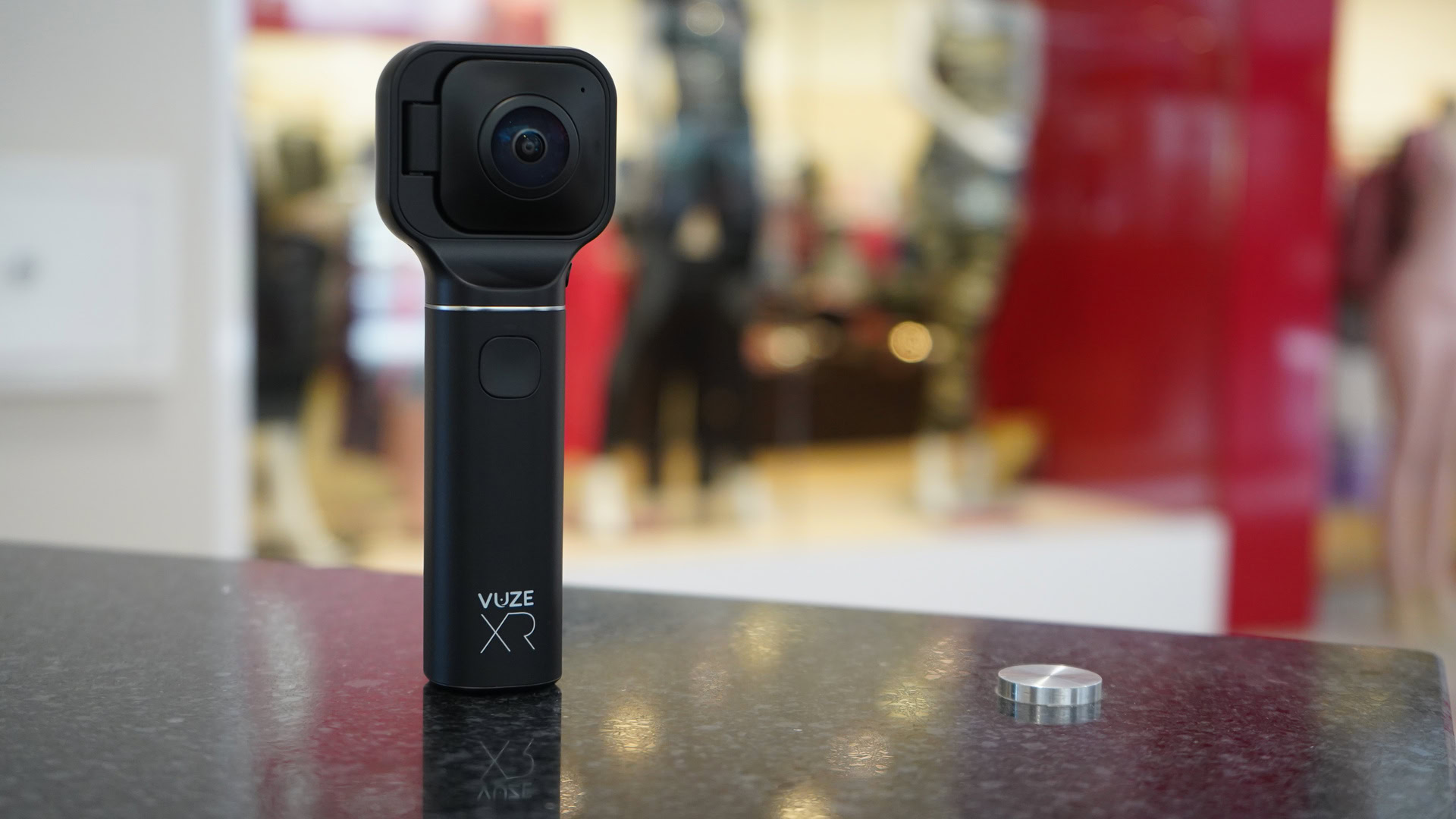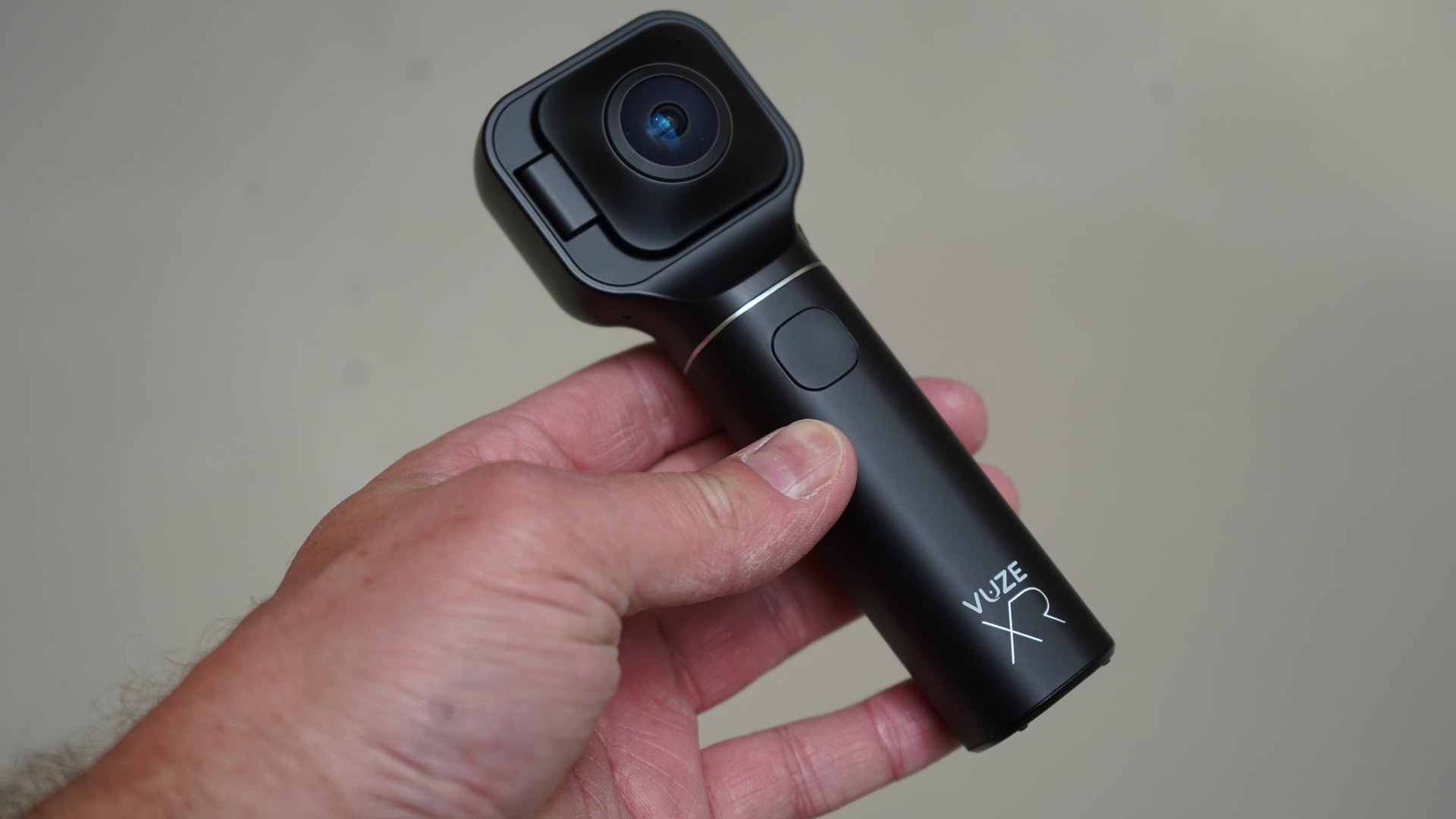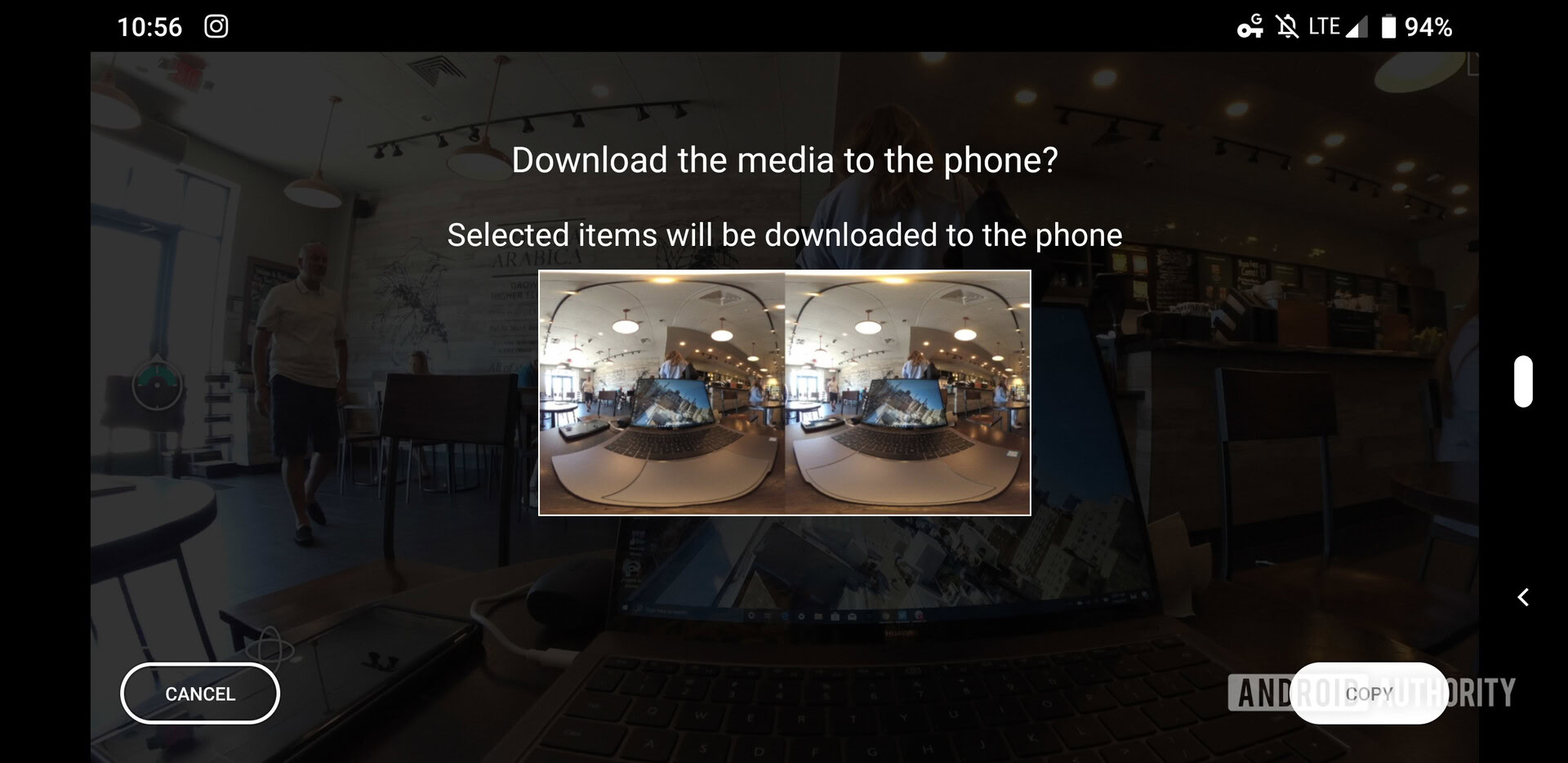Affiliate links on Android Authority may earn us a commission. Learn more.

Human Eyes Vuze XR Dual VR
What we like
What we don't like
Human Eyes Vuze XR Dual VR
The average distance between the pupils of human eyes is about 63mm. This separation is one of several factors that gives us all stereo vision, or the ability to see in three dimensions. It’s no accident, then, that HumanEyes positioned the cameras of its Vuze XR Dual VR camera 55mm apart. This gives the camera a near-human perception of depth when capturing 3D content.
If you’re in the market for a 360-degree camera, you’ve likely heard of Insta360, Ricoh, and GoPro. HumanEyes competes with these companies and the Vuze XR Dual VR is its flagship consumer product. It combines the ability to capture both 2D and 3D photos/videos into a single, simple-to-use device. Here is Android Authority‘s HumanEyes Vuze XR Dual VR camera review.
What is the Vuze XR Dual VR camera?
The Vuze XR Dual VR camera is a small, portable device that can capture 360-degree content in 2D or 180-degree content in 3D at resolutions up to 5.7K for video and 18MP for photos. Each sensor is a 12MP Sony IMX378 paired with a 210-degree fisheye lens at f/2.4.

It has a unique design. Like many 360 cameras, it relies on a pistol-style grip and the lenses sit above your hand when held. The lenses are on opposite sides of the camera for shooting 360 photos/videos, but flip out to face the same direction (strongly resembling human eyes) to take 3D content. The content is best consumed on a VR headset.
Some basic specs include an 1,200mAh battery that lasts for about 1 hour. It charges via USB-C, but connects to your phone via Wi-Fi. The camera supports high-speed microSD cards for writing all that data rapidly. A tripod mount is built into the bottom and it ships with a soft case, cable, and lanyard.

How do you use it?
Though you can take photos and videos without a phone thanks to physical buttons on the camera, the Vuze XR is best controlled by your smartphone. The free Android and iOS apps work well enough. I did have trouble updating the camera’s firmware. Other than that, the pairing process (via Wi-Fi) is straight forward, as are the controls for snapping shots or changing the settings.
Connect and shoot. That’s it.
Simple toggles let you flip between video and photo modes, as well as switch between spherical or panorama views on your smartphone screen, or a VR view via Oculus.
Photos and videos are stored on the included microSD card. You can transfer the content directly to your phone wirelessly or pop out the memory card to move photos/videos to your PC.

Connect and shoot. That’s it.
What kinds of pictures does it take?
Still photos appear to be stuck at 18MP, whether you shoot 3D 180 or 2D 360. They are saved as standard JPEGs averaging about 7MB. Video can be recorded in 5.7K at 30fps, or in 4K at either 60fps or 30fps. Video is saved as mp4 or H.264 files.
All the stitching takes place on the camera, so when you offload the photos and video to your phone or PC they are already in their final form.
You can choose to perform a wide variety of edits in the Vuze XR app on your phone. I particularly like that you can create tiny planet photos, change lighting, add stickers, and zoom-in effects.
Do the pictures look good?
I have yet to be truly impressed by any 360-degree camera I’ve tested over the years, but the Vuze XR is near the top of the list. Still images are sharp and relatively free of noise for a 360 camera. That is to say you’ll see soft edges here and there and some noise. Exposure, unfortunately, can be hit or miss. If anything, it tends to underexpose. See the mall shots, where the shadows are very dark. Colors look good, particularly when shooting outside.
The 4K 60fps video looks particularly good. It’s sharp, goofy, and fun. On-board stabilization helps a lot. I walked around my local mall with the camera and despite my movement the resulting footage is relatively shake free. You will need to rely on your computer to handle 4K 60fps and 5.7K footage, as the files are too big for your phone to handle.
Interested in sharing your 2D or 3D content? You can stream directly to Facebook or YouTube (via your phone), as well as to Oculus VR headsets. Photos and videos can also be shared via most normal social media channels, but actually viewing the content as it is meant to be seen will depend on the device and platform you’re using.
The photos and videos I captured with the Vuze XR easily surpasses the quality from Samsung’s Gear 360 camera and Motorola’s Moto 360 Mod.
Should I buy the Vuze XR Dual VR camera?
I found it simple to capture, manipulate, and share photos with the Human Eyes Vuze XR Dual VR camera. It’s semi-competitively priced at $439, though you’ll have to spend more for accessories such as a waterproof housing for use underwater.
The biggest detractor in my book is battery life. At 1 hour of capture time, it is somewhat limited. Worse, it is slow to charge. I found the best procedure was to keep a battery pack handy and plug it in between takes.
If you’re a VR virtuoso or simply a lover of alternate photo and video formats, the Human Eyes Vuze XR Dual VR camera is a lot of fun.
This concludes Android Authority’s Vuze XR Dual VR camera review.